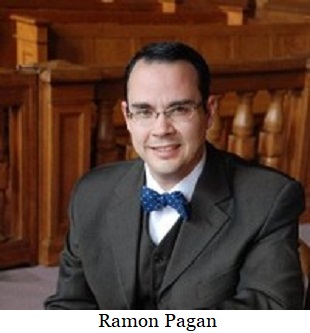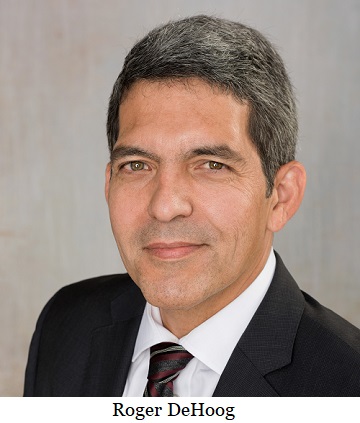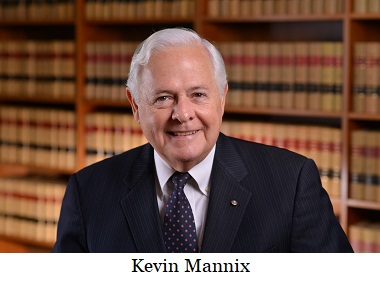 Post an Event
Post an Event
| Benton County Republicans’ Private Fundraising Event, “Bent-on Boots and Bling” with Trey Taylor |
| Friday, September 5, 2025 at 5:00 pm |
| Featuring Trey Taylor
Music Private Event
Friday, September 5, 2025 5:00-5:30 pm VIP Reception
5:30-8:00 pm Heavy Appetizers,
Auction, Concert
Red: $750 VIP Reception
Front Row Table Sponsor
White: $500 Table Sponsor
Blue: $50 per person
Limited Seating. Get Yours Now!!!
Support Local
Dress up: Bling, Cowboy, Patriotic Benton County Republican
FUNDRAISER
www.BentonGOP.org
Get your tickets today at:
https://www.bentongop.org/event-details/benton-county-republicans-fundraiser/form
About Trey:
Trey is the youngest African American Man in Country Music History. The Denver Post wrote
"It's impossible to miss his enthusiasm. With a fondness for cowboy boots, gaudy colors and dazzling jewelry, Trey Taylor could stand toe to toe with any of the Pop, Country or even Rap
contemporaries of his generation.“ |
| Trysting Tree Golf Club, 34028 NE Electric Rd., Corvallis |
Is the fourth candidate to withdraw
Jim Huggins, a Lt. Colonel in the Auxilliary Air Force and movie producer,
withdrew from the race to become Oregon’s next governor.
“We’ve got the right
message, and we’ve got the right plan,†Huggins said, “but we don’t have the
donor, volunteer, and organizational infrastructure we need to punch through a
crowded primary candidate field and position ourselves to win a general
election.â€
Huggins is the fourth candidate to withdraw from the crowded governor’s race
and the second Republican. Monte Sauer Jr withdrew as a Republican candidate,
and Nico Pucci and Casey Kulla withdrew from the Democrat lineup.
Kulla
withdrew to run for Commissioner of the Bureau of Labor and Industries.
Huggins’ campaign was largely based on four issues including getting tough on
crime, reducing homelessness, opposing the weakening of Measure 11
sentencing, and strengthening parental control over the direction of their
children’s education.
He continues to believe, as his internal polling shows, that
these issues can unite conservatives, non-affiliated voters, and moderate
Democrats to create an opportunity to end the Democrat stranglehold on the
governor’s mansion that has leg Oregon so far from what it can be.
A D V E R T I S E M E N T

A D V E R T I S E M E N T
“There are many ways to have an impact on elections and impact on public policy
apart from being elected governor that doesn’t require millions of dollars and out
of state consultants,†Huggins said. “I am not going away. Oregon can and must be
saved from bad leadership by advancing the principles of individual freedom and
personal responsibility in government. Such principles bring out the best in all of
us.â€
The machine of campaigning is complex, and good candidates are lost to the
process of learning the wheel. Media can bury a candidate as fast as a lack of
funding.
The remaining 17 Republicans and 11 Democrats need a self-evaluation
and not bog down the wheel.
--Donna Bleiler| Post Date: 2022-01-24 17:35:59 | Last Update: 2022-01-24 17:44:04 |
“Democrats are in the business of protecting the teachers’ unionsâ€
Today marks the beginning of National School Choice Week. The week is dedicated to the stories of students and families who have found the best school for them.
Research shows that students in states with more educational opportunities perform better on key educational attainment metrics.
According to State Senator Dennis Linthicum (R-Klamath Falls), the abysmal state of public education in Oregon is well documented. Just last week, The Department of Education
revealed that graduation rates slid backward compared to the previous year. Last year,
Democrats voted to abolish graduation standards that required students to demonstrate proficiency in reading, writing, and math because Oregon students do worse on reading and writing tests than students in 43 other states. Oregon was among the last 2 states in the nation to reopen schools, harming Oregon students, their mental health and their opportunity for a real education.
Yet, last week, Secretary of State Shemia Fagan unilaterally
denied voters a voice on a constitutional amendment to grant educational opportunities for their children.
“Democrats have made it clear that they are in the business of protecting the teachers' unions’ monopoly on education because union bosses fund their campaigns,†said Senator Linthicum. “Their ideas of ‘reform’ are throwing more money at a failing system while lowering any traditional performance standards. They are protecting a system that allows wealthy families to have a choice, while lowincome and our most vulnerable are trapped in failing schools.â€
A D V E R T I S E M E N T

A D V E R T I S E M E N T
Oregon has some of the most restrictive education laws in the country. Despite the limited options available to students and families outside of government-run schools, Oregonians are making it clear they are desperate for alternatives. During the pandemic, Oregon saw the
4th largest increase in charter school enrollment in the nation. A recent
survey shows that more than half of American families are looking for a new school. Support for educational opportunities
soared during the pandemic.
In the upcoming legislative session, Senator Linthicum will reintroduce
SB 657, legislation to increase the cap on virtual charter school enrollment. This bill will allow more children to choose an education that best fits their needs and will be assigned
Senate Bill number 1552 during the 2022 short session.
“This bill is just the beginning of the work that needs to be done to empower parents and students,†said Linthicum. “The artificial cap on virtual charter school enrollment caps children's futures. It's outdated, and needs to change. The money that funds education in this state doesn’t belong to schools. It belongs to Oregonians. The money should follow students and fund their educational needs, not prop up the dismal state of our current system. â€
--Staff Reports| Post Date: 2022-01-24 16:43:38 | Last Update: 2022-01-24 18:15:29 |
Judges for the Oregon Supreme Court and the Oregon Court of Appeals are normally elected
Governor Kate Brown has announced that she will appoint Judge Roger J. DeHoog, a Democrat, to the Oregon Supreme Court, as well as Judge Ramón A. Pagán, Kristina Hellman, and Anna M. Joyce to the Oregon Court of Appeals. DeHoog is a judge on the Court of Appeals, and will fill the Supreme Court vacancy created by the retirement of Justice Lynn R. Nakamoto. Pagán is a judge on the Washington County Circuit Court, and will fill the vacancy created by DeHoog’s elevation to the Supreme Court. Hellman is an attorney in the Federal Public Defender’s Office, and will fill the vacancy created by the retirement of Judge Rex Armstrong. Joyce is currently a shareholder at the Markowitz Herbold law firm, and will fill the vacancy created by the retirement of Judge Joel DeVore. All four appointments are effective immediately.
Judges for the Oregon Supreme Court and the Oregon Court of Appeals are normally elected, but if they retire part way through their term, the Governor appoints their replacement.
"Each of these highly qualified individuals brings a skill set and perspective informed by years of legal experience,†Governor Brown said. "I am grateful to this talented, diverse group of judges and lawyers, for stepping up to serve our state and administering justice on behalf of the people of Oregon.â€
DeHoog served as a trial judge on the Deschutes County Circuit Court from 2012 to 2015, before his appointment to the Court of Appeals. Prior to his judicial service, DeHoog practiced as a Deschutes County public defender from 1993 to 2000, and handled criminal defense and domestic relations cases while in private practice in Bend from 2000 to 2007. In 2008, DeHoog joined the Oregon Department of Justice’s Special Litigation Unit, which handles major state litigation on a variety of matters, including litigation on environmental, constitutional, and consumer protection laws. DeHoog received his bachelor’s degree from Dartmouth College, and his J.D. from the University of Oregon Law School. DeHoog serves on the Judicial Conduct Committee, is the former chair of the State Bar Constitutional Law Section Executive Committee, and is on the Oregon Council on Court Procedures. In addition, he serves on the board of NeighborImpact, a community action agency serving Central Oregon. He will be the second Asian Pacific American ever to serve on the Oregon Supreme Court, and is the only judge on either of Oregon’s appellate courts from outside the Willamette Valley.

Pagán has served as a Washington County Circuit Court judge since 2016, and served as the chief judge of the court’s family law bench from 2018 to 2021. Before his appointment to the trial court, he was a criminal defense attorney in private practice from 2004 to 2016, including as an associate attorney at Janet Hoffman & Associates LLC. While he was in law school, Pagán served as a law clerk for Sonia Sotomayor, who was then a judge of the Second Circuit Court of Appeals and is currently an Associate Justice of the U.S. Supreme Court. After graduating from law school, he worked as a staff attorney at the Second Circuit Court of Appeals, and then at civil and criminal firms in New York prior to settling in Oregon. Active in his community, Judge Pagán has taught trial advocacy at Lewis & Clark Law School in Portland and the Fordham University School of Law in New York, and serves on the Judicial Conduct Committee, the Oregon State Bar Professionalism Committee, and the Literary Arts board of directors. He is a graduate of Arizona State University and the Fordham University School of Law.

Hellman has been an assistant federal public defender for the Federal Public Defender’s Office in Portland, where she currently serves as a supervising attorney. Hellman represents clients in federal habeas corpus cases who are challenging their Oregon state convictions on federal constitutional grounds. Prior to joining the Federal Public Defender’s Office in 2002, Hellman served as a law clerk for U.S. District Court Judge Edward C. Reed in the District of Nevada. In addition to her law practice, Hellman has taught as an adjunct professor at Lewis & Clark Law School, served as a board member of the Oregon Chapter of the Federal Bar Association, and has coached the Franklin High School Constitution Team. She earned her bachelor’s degree from the University of Michigan, and her J.D. from Georgetown Law School.

Joyce, a shareholder at the Markowitz Herbold law firm in Portland, is regarded as one of the state’s top appellate lawyers. She has argued hundreds of appeals before Oregon’s appellate courts and the Ninth Circuit Court of Appeals, and has briefed cases before the U.S. Supreme Court. Before joining the Markowitz firm, Joyce practiced in the Appellate Division of the Oregon Department of Justice from 2003 to 2015, and served as Oregon’s Solicitor General. Her practice at Markowitz focuses on complex civil litigation motions and appeals, and she recently served as the managing shareholder. Among her many community and bar activities, Joyce has taught appellate advocacy at Lewis & Clark Law School, is a mentor for the Oregon State Bar New Lawyer Mentoring Program, and serves on the board of directors for Outside In. Joyce began her legal career as a law clerk for Oregon Court of Appeals Judge Rives Kistler. She received both her bachelor’s degree and her J.D. from the University of Oregon.
--Staff Reports| Post Date: 2022-01-23 07:53:48 | Last Update: 2022-01-23 08:43:38 |
“The Court’s decision in this case will establish precedentâ€
Oregon may be becoming a political playground for rich liberal elites -- even from out of state. Former New York Times columnist and CNN pundit, Nicholas Kristof, fresh from disqualification from the Oregon Democrat gubernatorial primary has taken his appeal to the Oregon Supreme Court, and though most public offices will decline comment on pending cases, Oregon Secretary of State Shemia Fagan is glad to argue her side in the press.
According to a release put out by Secretary Fagan -- who is also an attorney -- "Objective facts demonstrate that until late 2020, Mr. Kristof’s primary residence was in New York. His legal arguments are impossible to square with the Oregon Constitution’s equitable standard and would lead to special treatment for well-connected candidates."
The Oregon Department of Justice, led by Oregon Attorney General Ellen Rosenblum, filed a brief with the Oregon Supreme Court on behalf of Secretary of State Shemia Fagan, asking the Court to uphold the Elections Division’s January 6 disqualification of Nicholas Kristof as candidate for Oregon Governor.

Article V, section 2, of the Oregon Constitution states that a candidate must be a “resident within†Oregon for the three years before the general election.
“My focus throughout this process has been to make sure Oregonians can trust the accuracy of their ballots,†Secretary Fagan said. “I have a duty to Oregon voters to make sure every candidate on their ballot is qualified to serve.â€
Secretary Fagan Continued, “The Court’s decision in this case will establish precedent for hundreds of decisions local elections officials make every year about what it means to be a “resident†for purposes of running for political office. It’s clear that the framers of the Oregon Constitution understood that residency means an Oregon “domicile,†and that you can only have one domicile at a time. Not only do the objective facts demonstrate that Mr. Kristof was not domiciled in Oregon until late 2020, his legal arguments are impossible to square with an equitable standard for future candidates. They would create irrational results. For example, under the rule Mr. Kristof proposes, a person would be eligible to run for Governor, or serve as Governor, in two different states at the same time.â€
In the
77 page brief, Secretary Fagan makes the following points:
At issue is the definition of “resident within†Oregon. When the Constitution was written, residency meant domicile (living permanently) in Oregon. Contemporaneous legal definitions, case law, and even the own words of delegates at Oregon’s Constitutional Convention support this commonsense definition. This long-established standard was placed in the Constitution to ensure candidates had some stake in our state’s political and civic life. It’s clear they did not intend to allow a person to serve if they had been a permanent resident of another state during the years just before their election. The brief refers to this as the “domicile test."

Objective facts demonstrate that Mr. Kristof fails the domicile test. Until December 2020, Mr. Kristof’s primary residence — his legal domicile — was in New York. These facts include: Voting in New York from 1999 through the November 2020 election; Centering his professional and personal life in New York, where he owned a home he used as a base for his job at the New York Times, where he returned to after international travel, and where he enrolled his children in school; Maintaining a driver’s license in New York even though New York law only requires in-state licenses for permanent residents; and Paying income taxes in New York from 1999 to 2020. Based on all the facts before them, elections officials correctly determined Mr. Kristof did not meet the residency requirements to run for Governor of Oregon in 2022 and should not appear on the ballot.
Mr. Kristof makes three arguments for his inclusion on the ballot, but all fail to identify a workable standard that applies fairly to everyone. The
Secretary’s brief states:
1) [Mr. Kristof] repeatedly [invokes] his status as a “frontrunner†in the gubernatorial race, as a person who has raised millions of dollars, and as a person who has numerous supporters...Embedded in this “frontrunner†standard is [Mr. Kristof’s] argument that the Court should “let the voters decide.†But this court should strongly reject the implication that a person’s popularity, wealth, or political clout is relevant to whether they are “resident within†Oregon. The Elections Division and local elections officials apply the same rule to all candidates no matter how known or unknown they are, and regardless of how many residences they own, if they own a residence at all, or if they are houseless. Adopting the rule [Mr. Kristof] appears to propose would enable a grave injustice, in which “the voters decide†for well-resourced and well-connected candidates, and other candidates are held to a more exacting standard. (Page 31)
A D V E R T I S E M E N T

A D V E R T I S E M E N T
2) [Mr. Kristof] contends that a person who owns homes in multiple states could be “resident within†Oregon without being domiciled there. But that rule produces irrational results. It would allow a person to be elected Governor of Oregon while continuing to vote and live out of state. Even more counterintuitively, that person could run for Governor of two different states at the same time. Construing residency so broadly that it allowed those scenarios would undermine the reasons for adopting any residency requirement at all. (Page 31)
3) [Mr. Kristof also] suggests that he should be considered “resident within†Oregon because he feels a deep connection to the state … But no filing officer could ever make consistent, fair determinations about a candidate’s qualifications for office based on such subjective, transitory facts. (Page 32)
The Elections Division’s decision to disqualify Mr. Kristof was made by an experienced elections professional who has served Oregon for nearly two decades, working on residency determinations under the last six Secretaries of State. Her decision was based on the objective facts he provided and which were publicly available and known to the Elections Division. The decision was not unusual. On the contrary, it is a common, and often uncontroversial occurrence for elections officials to determine that a candidate does not meet residency and/or other requirements and cannot appear on the ballot. The Elections Division disqualified ten other candidates in the past year, including six other candidates for Governor.
"The rules are the rules and they apply equally to all candidates for office in Oregon,†Secretary Fagan said. “I stand by the determination of the experts in the Oregon Elections Division that Mr. Kristof does not currently meet the Constitutional requirements to run or serve as Oregon Governor.â€
--Staff Reports| Post Date: 2022-01-22 12:21:24 | Last Update: 2022-01-22 13:03:05 |
Andrea Bell will serve as Acting Director
Governor Kate Brown
has named Andrea (on-DRAY-uh) Bell as Acting Director of Oregon Housing and Community Services (OHCS).
Bell serves currently as the Director of Housing Stabilization, where she is a member of the agency’s executive team and leads a division implementing a wide range of homeless services, energy and weatherization assistance, rental assistance programs, and policy initiatives to advance equity and racial justice.
She will begin serving as Acting Director in February.
“Andrea Bell has the extensive leadership and on-the-ground expertise to ensure a seamless transition for Oregon Housing and Community Services at this critical moment, as we continue to work to help keep Oregonians in their homes,†said Governor Brown. “And, she has the vision to lead the agency as we begin to move from federal and state-funded emergency response to supporting and developing long-term eviction prevention services at the local level. I am confident in her leadership as we work to continue to expand affordable housing in Oregon, strengthen tenant protections, help people experiencing homelessness find homes, and address the deep racial disparities in housing stability and homeownership caused by decades of racism in housing policy in this country.â€
“OHCS is in a pivotal moment in continuing to help thousands of Oregon families access stable and affordable housing,†said Director Bell. “Under the leadership of Executive Director Margaret Salazar, this past year was the most impactful in OHCS history with millions of dollars disbursed in emergency response-focused work. During a global health pandemic this assistance provided a lifeline, ensuring thousands of Oregon’s most vulnerable residents could remain stably housed, keeping kids in school, and avoiding slipping into homelessness. In these unfathomable times, it’s an honor to be in the position of guiding the agency work outlined in the Statewide Housing Plan. I am humbled and grateful to continue to advance this work across the housing continuum with talented and dedicated staff to increase housing stability across Oregon. All Oregonians, regardless of their zip code, or where they come from, deserve safe, stable, and affordable housing."
A D V E R T I S E M E N T

A D V E R T I S E M E N T
Bell started working for OHCS in April 2019 as the Assistant Director for Homeless Services and became the Director of Housing Stabilization in 2020, where she was an architect in Oregon’s controversial emergency rental assistance program.
As Assistant Director of Homeless Services, Bell helmed the development and oversight of the homeless services strategic planning and initiatives.
Before coming to OHCS, Bell was a Housing Administrator for the Medicaid health plan, Mercy Care.
Bell earned a master’s degree of public health from Arizona State University and a bachelor's degree from California State University Northridge.
--Bruce Armstrong| Post Date: 2022-01-21 18:08:11 | Last Update: 2022-01-21 18:27:01 |
Teachers’ unions have regarded school choice as an existential threat
Secretary of State Shemia Fagan (D-Portland) has rejected Initiative Petition 1 for the 2024 cycle on the grounds that it makes multiple changes to the Oregon Constitution. Initiative petitions may each only make a single change to the Oregon Constitution. Republican Gubernatorial candidate Marc Theilman was the Chief Petitoner. IP 1 proposed to make changes to the Oregon Constitution allowing school choice.
Shemia Fagan was first elected as Secretary of State in 2020. She was heavily supported by public employee unions, especially teachers' unions, including $19,500 from the American Federation of Teachers and $56,500 from the Oregon Education Association. Teachers' unions have regarded school choice as an existential threat.
"All Oregon families deserve the right to choose the school that their children attend. We are disappointed that the Secretary of State denied Oregonians the opportunity to vote for expanding educational opportunities for all students and will appeal" said Donna Kreitzberg, a representative of the Education Freedom for Oregon Executive Committee"
According to Secretary Fagan,
"The Secretary has determined it does not comply with the procedural requirements established in the Oregon Constitution for initiative petitions. In particular, the Secretary has determined that the Initiative Petition does not comply with the requirements of Article XVII, section 1, of the Oregon Constitution. The purpose of this requirement is to allow voters to express their opinions separately on each proposed change to Oregon’s fundamental law.
The Oregon Constitution gives voters the right to consider and vote on these changes separately and it is the Secretary’s duty to protect that right by rejecting initiative petitions that would violate that right.
The Secretary has determined it does not comply with the procedural requirements established in the Oregon Constitution for initiative petitions. In particular, the Secretary has determined that the Initiative Petition does not comply with the requirements of Article XVII, section 1, of the Oregon Constitution. The purpose of this requirement is to allow voters to express their opinions separately on each proposed change to Oregon’s fundamental law.
The Oregon Constitution gives voters the right to consider and vote on these changes separately and according to Secretary Fagan, it is the Secretary’s duty to protect that right by rejecting initiative petitions that would violate that right.
A D V E R T I S E M E N T

A D V E R T I S E M E N T
In the Secretary’s view, IP 2024-001 makes at least three unrelated changes to the Oregon Constitution. These include:
- Giving parents of public-school children a new constitutional right to choose to have their child attend any public school in their school district that has room, even if it is outside their attendance area;
- Creating a new constitutional requirements for school funding, which tell the state to finance any private educational methods a parent chooses, specify how the state must calculate and provide the funds, and explain how parents may spend the funds;
- Requiring the state to fund religiously based education, thus implicitly amending Article I, section 5, of the Oregon Constitution, which prohibits the state from spending treasury funds for the benefit of any religious or theological institution.
In making the determination the Secretary of State reviewed the text of Initiative Petition 2024-001, considered all procedural constitutional requirement comments filed, and received counsel from the Attorney General.
--Staff Reports| Post Date: 2022-01-20 22:08:29 | Last Update: 2022-01-20 23:47:13 |
Mannix has lead opposition to Governor Brown
Kevin Mannix has announced a run for Oregon House District 21 in the Oregon state legislature.
"Oregonians-especially crime victims-need a trusted advocate serving them," Mannix declared.
Former State Representative, State Senator, and Governor candidate Kevin Mannix
announced on Thursday that he has filed with the Secretary of State for State
Representative, House District 21 (Keizer and Central Salem) as a Republican.
Mannix has run his own Salem law firm since 1986, served as Chair of the Oregon
Republican Party as well as the Marion County Republican Party and served five terms
in the Oregon House of Representatives. He is well known in Oregon political and legal
circles as the father of Measure 11, the popular ballot measure that instituted mandatory
minimum sentencing for violent crimes.
"I am running to return to the Oregon House because I have witnessed the erosion of
public safety by the legislature and the lack of support for victims of crime in Oregon,"
said Mannix. "Oregonians-especially crime victims-need a trusted advocate serving
them." Mannix added, "Our public education system needs to respect parental
involvement and return to a system that meets the needs of our children and upholds
Our values."
In 2020, Mannix led again with the fight against the lockdown of churches, schools and
small businesses by the Governor's Executive Orders. He took that fight all the way to
the Oregon Supreme Court. Mannix has continued to lead the opposition to Governor
Brown's mandates.
A D V E R T I S E M E N T

A D V E R T I S E M E N T
Kevin and his wife, Susanna, were married in June 1974. Susanna is a registered nurse
at Salem Hospital. Kevin and Susanna have three children: Nicholas, Gabriel, and
Emily.
"I look forward to the opportunity to advocate at the Legislature for the good people of
Keizer and Central Salem following this election," said Mannix.
--Bruce Armstrong| Post Date: 2022-01-20 13:55:55 | Last Update: 2022-01-20 14:12:37 |
4th and 5th graders urged to join without parental knowledge
The acronym QSA stands for Queer Straight Alliance or Queer & Sexuality Alliance. It
seems that the LGBTQ has invaded elementary schools motivating
LGBTQ students to start QSA Clubs.
A slide presentation with an
invitation to join the QSA Club was presented to all 4th and 5th graders at
Raleigh Hills Elementary School in Beaverton School District.
Parents are just finding out about the invitation to 4th and 5th graders
and asking why they weren’t informed of clubs. A public records
request revealed predatory behavior on the part of the social worker,
district personnel, and principal pressuring kids into joining this club by
signing a contact form without parental knowledge or consent.
The record shows district leadership, Pat McCreery, sought district counsel’s
guidance on permission slips trying to not tell parents. The district’s
legal counsel responded: â€In summary, it looks like the permission part
is needed for student transportation, not general participation, and to
answer the question of who is in the building before/after hours, not
why they are there.â€
For a club to be able to occur on a school campus,a teacher or other school staff has to be the sponsor and it has to get administration approval.
The administrator approved Amanda Cook, Raleigh Hills
Elementary Social Worker, as the school faculty advisor for the QSA
Club.
Her request states, “We have a small group of students now
asking and advocating to start a QSA, and I’m hopeful we can start after
winter break.†Did students contact her, or did she instigate the
contact? Cook organized the material for the club invitation and used
classroom hours for the presentation. Her office is the meeting place
during lunch to avoid contacting parents.
A D V E R T I S E M E N T

A D V E R T I S E M E N T
The club is intended to be student run. However, the presentation and
goals are beyond elementary levels. One slide said QSA is a community
where everyone belongs; students who identify as LGBTQ+, their allies,
and those who want to learn more. Another slide addressed: What will
we do?
- Have conversations about identity, gender, equal rights and social
issues that are important to you
- Explore LGBTQ+ history and activism
- Discuss personal struggles and successes in a supportive space
- Advocate for change in our school and community
Representative E Werner Reschke (R-Klamath/Lake Counties)
responded to the situation, “This is shocking. It is grooming at best; evil
at worst. Sexualizing children is wrong, period, full stop. It is child
abuse, no matter whether done by a pedophile or by the state.â€
Jeanette Schade, educator for 24 years, stated in public testimony, “It is
absolutely appalling that school teachers and officials are partaking in
this type of behavior who are supposed to be ‘safe’ adults. These are 9-
and 10-year-olds. Keep the personal and social politics out of the
schools. Stop this predatory behavior and get back to teaching reading,
writing and arithmetic without indoctrination.â€
--Donna Bleiler| Post Date: 2022-01-19 19:24:09 | Last Update: 2022-01-19 19:37:46 |
“That power rests with the States and Congress, not OSHAâ€
In March of 2020, with very little scientific or historical data available, Oregon Governor Kate Brown issued an
executive order declared an emergency and imposed a shutdown of the state, except for essential services, essentially shutting down the economy for a period of two weeks in the name of preserving hospital capacity. At the time, there was little objection. After all, it was only for two weeks and though hindsight is 20/20 and we know a lot more about COVID-19 now, at the time the impact of the disease was unknown.
Nearly two years into the COVID-19 outbreak, the boundaries of state power are being scrutinized. On a national level, the US Supreme Court, in an opinion in the case of
National Federation of Independent Business v. Department of Labor, Occupational Safety and Health Administration a stay of the Biden Administration's vaccine mandate was granted. A concurring opinion, authored by Neil Gorsuch -- an affirmation of liberty over security -- reads in part:
The question before us is not how to respond to the pandemic, but who holds the power to do so. The answer is clear: Under the law as it stands today, that power rests with the States and Congress, not OSHA. In saying this much, we do not impugn the intentions behind the agency’s mandate. Instead, we only discharge our duty to enforce the law’s demands when it comes to the question who may govern the lives of 84 million Americans. Respecting those demands may be trying in times of stress. But if this Court were to abide them only in more tranquil conditions, declarations of emergencies would never end and the liberties our Constitution’s separation of powers seeks to preserve would amount to little.
In light of this decision, House Republican Leader Vikki Breese-Iverson (R-Prineville) said, “The U.S. Supreme Court made an important decision by blocking a federal COVID-19 vaccine mandate for private employees. The message was clear: OSHA does not have the authority to

broadly regulate public health. This should apply to Governor Kate Brown’s Oregon OSHA and its failed leadership because it has not respected individual health care decisions. In light of this important action from the Supreme Court, House Republicans call on Oregon OSHA to remove its strict and punitive COVID-19 mandates on private businesses and drop its plans for a permanent indoor mask mandate.â€
Likewise, Representative Christine Drazan (R-Canby) said, “The Supreme Court made the right decision today by blocking a COVID-19 vaccine mandate for employees of large businesses. This vaccine rule would have forced private employees to choose between giving up control of their own personal health care or forfeit their jobs. That’s not a real choice. Oregonians and all Americans deserve the dignity of deciding what is best for themselves. The government should not force them to lose their jobs because of their own personal health care decisions.â€

State Senator Kim Thatcher (R-Keizer) has also questioned the limits on the authority of the Oregon Health Authority and asked Oregon Health Authority Director Pat Allen "what statute(s) give OHA the authority to mandate vaccinations, masks or any other mandate concerning COVID?"
He replied that
ORS 431.110 (General powers of the Oregon Health Authority) provides in section (1) that OHA shall “Have direct supervision of all matters relating to the preservation of life and health of the people of the state.†More specifically, section (5) provides that OHA shall “have full power in the control of all communicable diseases.†These are general powers, and are not tied to any emergency declarations.
Thatcher mused, "If the “general†statutory powers (not even including “emergency†powers) the OHA claims they have are covered under “all matters relating to the preservation of life and health of the people of the state†then what’s stopping them from banning cigarettes, mandating dietary choices, and dictating an acceptable body mass index? Or, even further, demanding carbon dioxide limits, or banning weapons? The list could go on forever."
In what amounts to a self-serving,
bureaucratic dump of some 42 pages Oregon OSHA outlines it's authority.
Echoing Justice Gorsuch, Thatcher added, “It seems they are granting themselves legislative powers.â€
--Staff Reports| Post Date: 2022-01-19 07:22:50 | Last Update: 2022-01-19 08:00:10 |
Needed improvements remain unaddressed
Interstate 5 provides a critical connection between Oregon and Washington that supports local jobs and families, and is a vital trade route for regional, national and international economies.
Operating and maintaining these aging structures costs around $1.2 million each year, split evenly between ODOT and WSDOT. Larger maintenance projects to keep the Interstate Bridge in service are expected to cost over $280 million through the year 2040, not including seismic retrofit.
Replacing the aging Interstate Bridge across the Columbia River with a modern, seismically resilient, multimodal structure that provides improved mobility for people, goods and services is a high priority for Oregon and Washington.
Recognizing that needed improvements remain unaddressed, Washington and Oregon dedicated a combined $50 million in 2019 to restart Interstate Bridge replacement work. The states’ governors and legislative leaders directed ODOT and WSDOT to open a bi-state project office to complete the planning, design and construction work.
ODOT and WSDOT are jointly leading these efforts in coordination with eight other bi-state partner agencies: TriMet, C-TRAN, Oregon Metro, the Southwest Washington Regional Transportation Council, the cities of Portland and Vancouver, and the Ports of Portland and Vancouver. These agencies have a direct stake in future improvements because of their roles within the region’s integrated, multimodal transportation system.
A D V E R T I S E M E N T

A D V E R T I S E M E N T
Together with ODOT and WSDOT, they will provide coordinated regional leadership throughout program development.
Bi-state legislative involvement will also be essential to successfully complete the planning and design process and move to construction. Each state legislature has identified eight lawmakers to provide direction and oversight to shape IBR program work. Oregon’s Joint Interim Committee on the Interstate 5 Bridge is co-chaired by Senator Lee Beyer (D-Eugene) and Representative Susan McLain (D-Hillsboro). The Committee will meet with the Washington State Legislature’s committee on January 24, 2022 in a remote meeting at 6 PM. The meeting will be live streamed providing updates on the process to identify solution and draft modifications. Public comments or written testimony will be available.
--Donna Bleiler| Post Date: 2022-01-18 21:06:24 | Last Update: 2022-01-18 21:25:21 |
“He would detest the violence that has taken over many American citiesâ€
As the nation remembers the tremendous legacy of Dr. King, the Oregon Senate Republicans honored his legacy of non-violence and peaceful protest.
Through Dr. Martin Luther King Jr., Americans were shown how non-violence could catalyze some of the greatest reforms in the nation’s history.
Many try to use Dr. King’s legacy to push their political agenda while tossing aside what his example means for America today.
His wisdom of non-violence and peaceful protest still rings true. As he said in his 1964 Nobel lecture, “Violence is immoral because it thrives on hatred rather than love… violence ends up defeating itself. It creates bitterness in the survivors and brutality in the destroyers.â€
A D V E R T I S E M E N T

A D V E R T I S E M E N T
“What is clear from Dr. King’s writing and teachings is that he would detest the violence that has taken over many American city streets in the name of ‘justice’. Today, we should remember Dr. King for what he actually did and advocated for. His incredible sacrifice is a lesson for all of us,†said Senator Tim Knopp (R-Bend).
--Bruce Armstrong| Post Date: 2022-01-17 20:47:20 | Last Update: 2022-01-17 21:02:32 |
Vaccinated can spread COVID, but no test required
This weekend was the Oregon All-State Choir and Band Competition in Eugene.
Middle Schools and high schools all over the state submit recording of
their performance with the hopes to be selected to compete. Students
in music consider qualifying for this event a badge of honor for their
school.
In order to attend and compete, students were divided into two
groups. If the student were vaccinated, they got a free pass. However,
unvaccinated students were required to show a negative Covid test.
One parent, Katrina Cole, is speaking out against this discriminatory
practice between the vaccinated and unvaccinated students. She
voiced her concern to Director Sutton of OMEA about the
discrimination policy. “I was told there would be no measures taken to
protect my child from other students who were vaccinated.â€
On January 13, 2022, the
Oregon Health Authority reported that 72,683
fully vaccinated individuals have tested positive for Covid that has been
reported. CDC also says that people with vaccine breakthrough
infections can spread Covid to others.
Cole says, “My son is a student in the Sherwood School district and was
scheduled to participate in the All-State choir performance in Eugene
with other Oregon middle school students. In order to participate, he
was required to show a negative Covid test or a vaccine card. Although
he had no known exposure and no symptoms whatsoever, due to his unvaccinated status, we had to take the test. Much to our surprise it
was positive.â€
Cole is not objecting that her son could not attend, but how many
students that are vaccinated were allowed to attend that were also
positive. Disappointed, she emailed Director Sutton requesting a refund
of the $300 associated with the event and was refused even though
attendance was out of their control.
Cole spoke with other health care officials who are very concerned with
this policy and extremely surprised the event was not postponed due to
our current outbreak situation and school closures.
A D V E R T I S E M E N T

A D V E R T I S E M E N T
Not only is this
inequitable for the number of students who are testing positive, but it
clearly discriminated against unvaccinated students.
She posed the
situation to Director Sutton, “My son is not even sick (no symptoms
whatsoever). He only tested based on your policy, as an unvaccinated
participant. Without requiring this for all participants, you have
discriminated against him. This is not equitable at all. How many
asymptomatic vaccinated students are you allowing to participate and
spread Covid? Now you are refusing to refund the hard-earned money
he worked for to be able to attend this event in the first place. I fully
support music education, but I hope that the injustices on these policies
will be brought to light and corrected in the near future. You can be
sure I will be fighting for the rights of ALL students.â€
--Donna Bleiler| Post Date: 2022-01-16 10:35:21 | Last Update: 2022-01-17 15:32:36 |
Read More Articles











 Pagán has served as a Washington County Circuit Court judge since 2016, and served as the chief judge of the court’s family law bench from 2018 to 2021. Before his appointment to the trial court, he was a criminal defense attorney in private practice from 2004 to 2016, including as an associate attorney at Janet Hoffman & Associates LLC. While he was in law school, Pagán served as a law clerk for Sonia Sotomayor, who was then a judge of the Second Circuit Court of Appeals and is currently an Associate Justice of the U.S. Supreme Court. After graduating from law school, he worked as a staff attorney at the Second Circuit Court of Appeals, and then at civil and criminal firms in New York prior to settling in Oregon. Active in his community, Judge Pagán has taught trial advocacy at Lewis & Clark Law School in Portland and the Fordham University School of Law in New York, and serves on the Judicial Conduct Committee, the Oregon State Bar Professionalism Committee, and the Literary Arts board of directors. He is a graduate of Arizona State University and the Fordham University School of Law.
Pagán has served as a Washington County Circuit Court judge since 2016, and served as the chief judge of the court’s family law bench from 2018 to 2021. Before his appointment to the trial court, he was a criminal defense attorney in private practice from 2004 to 2016, including as an associate attorney at Janet Hoffman & Associates LLC. While he was in law school, Pagán served as a law clerk for Sonia Sotomayor, who was then a judge of the Second Circuit Court of Appeals and is currently an Associate Justice of the U.S. Supreme Court. After graduating from law school, he worked as a staff attorney at the Second Circuit Court of Appeals, and then at civil and criminal firms in New York prior to settling in Oregon. Active in his community, Judge Pagán has taught trial advocacy at Lewis & Clark Law School in Portland and the Fordham University School of Law in New York, and serves on the Judicial Conduct Committee, the Oregon State Bar Professionalism Committee, and the Literary Arts board of directors. He is a graduate of Arizona State University and the Fordham University School of Law.
 Hellman has been an assistant federal public defender for the Federal Public Defender’s Office in Portland, where she currently serves as a supervising attorney. Hellman represents clients in federal habeas corpus cases who are challenging their Oregon state convictions on federal constitutional grounds. Prior to joining the Federal Public Defender’s Office in 2002, Hellman served as a law clerk for U.S. District Court Judge Edward C. Reed in the District of Nevada. In addition to her law practice, Hellman has taught as an adjunct professor at Lewis & Clark Law School, served as a board member of the Oregon Chapter of the Federal Bar Association, and has coached the Franklin High School Constitution Team. She earned her bachelor’s degree from the University of Michigan, and her J.D. from Georgetown Law School.
Hellman has been an assistant federal public defender for the Federal Public Defender’s Office in Portland, where she currently serves as a supervising attorney. Hellman represents clients in federal habeas corpus cases who are challenging their Oregon state convictions on federal constitutional grounds. Prior to joining the Federal Public Defender’s Office in 2002, Hellman served as a law clerk for U.S. District Court Judge Edward C. Reed in the District of Nevada. In addition to her law practice, Hellman has taught as an adjunct professor at Lewis & Clark Law School, served as a board member of the Oregon Chapter of the Federal Bar Association, and has coached the Franklin High School Constitution Team. She earned her bachelor’s degree from the University of Michigan, and her J.D. from Georgetown Law School.
 Joyce, a shareholder at the Markowitz Herbold law firm in Portland, is regarded as one of the state’s top appellate lawyers. She has argued hundreds of appeals before Oregon’s appellate courts and the Ninth Circuit Court of Appeals, and has briefed cases before the U.S. Supreme Court. Before joining the Markowitz firm, Joyce practiced in the Appellate Division of the Oregon Department of Justice from 2003 to 2015, and served as Oregon’s Solicitor General. Her practice at Markowitz focuses on complex civil litigation motions and appeals, and she recently served as the managing shareholder. Among her many community and bar activities, Joyce has taught appellate advocacy at Lewis & Clark Law School, is a mentor for the Oregon State Bar New Lawyer Mentoring Program, and serves on the board of directors for Outside In. Joyce began her legal career as a law clerk for Oregon Court of Appeals Judge Rives Kistler. She received both her bachelor’s degree and her J.D. from the University of Oregon.
Joyce, a shareholder at the Markowitz Herbold law firm in Portland, is regarded as one of the state’s top appellate lawyers. She has argued hundreds of appeals before Oregon’s appellate courts and the Ninth Circuit Court of Appeals, and has briefed cases before the U.S. Supreme Court. Before joining the Markowitz firm, Joyce practiced in the Appellate Division of the Oregon Department of Justice from 2003 to 2015, and served as Oregon’s Solicitor General. Her practice at Markowitz focuses on complex civil litigation motions and appeals, and she recently served as the managing shareholder. Among her many community and bar activities, Joyce has taught appellate advocacy at Lewis & Clark Law School, is a mentor for the Oregon State Bar New Lawyer Mentoring Program, and serves on the board of directors for Outside In. Joyce began her legal career as a law clerk for Oregon Court of Appeals Judge Rives Kistler. She received both her bachelor’s degree and her J.D. from the University of Oregon.

 Article V, section 2, of the Oregon Constitution states that a candidate must be a “resident within†Oregon for the three years before the general election.
Article V, section 2, of the Oregon Constitution states that a candidate must be a “resident within†Oregon for the three years before the general election.











 broadly regulate public health. This should apply to Governor Kate Brown’s Oregon OSHA and its failed leadership because it has not respected individual health care decisions. In light of this important action from the Supreme Court, House Republicans call on Oregon OSHA to remove its strict and punitive COVID-19 mandates on private businesses and drop its plans for a permanent indoor mask mandate.â€
broadly regulate public health. This should apply to Governor Kate Brown’s Oregon OSHA and its failed leadership because it has not respected individual health care decisions. In light of this important action from the Supreme Court, House Republicans call on Oregon OSHA to remove its strict and punitive COVID-19 mandates on private businesses and drop its plans for a permanent indoor mask mandate.â€
 State Senator Kim Thatcher (R-Keizer) has also questioned the limits on the authority of the Oregon Health Authority and asked Oregon Health Authority Director Pat Allen "what statute(s) give OHA the authority to mandate vaccinations, masks or any other mandate concerning COVID?"
State Senator Kim Thatcher (R-Keizer) has also questioned the limits on the authority of the Oregon Health Authority and asked Oregon Health Authority Director Pat Allen "what statute(s) give OHA the authority to mandate vaccinations, masks or any other mandate concerning COVID?"





